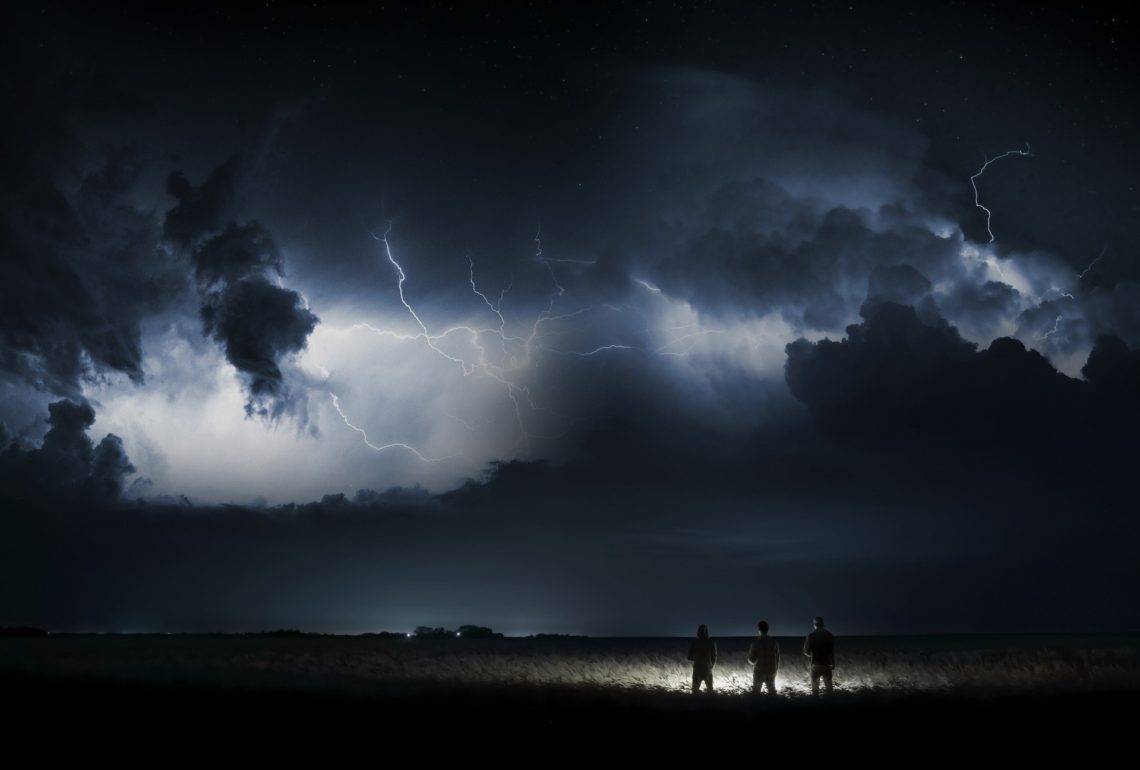
Insomnia: Turning My Worst Enemy Into My Greatest Teacher
Insomnia: the force you can’t fight
The beginnings
As a child and adolescent, I wrestled with sleep here and there, but was generally known within my family and group of friends as the “sleepy head.” I was always the first among my friends to fall asleep during sleepovers, and I hated having to stay up “late” to watch the ball-drop on New Year’s Eve. Insomnia and I never crossed paths, even throughout college and grad school . I could always count on a solid 7–8 hours of sleep a night, and perhaps a nap or two during the week. But in my late 20’s, everything about my sleep changed.
The first night of insomnia
Around this time as I was still navigating my young adult years, I started experiencing waves of physical, emotional, and financial stressors, all of which seemed to culminate at once. One night, after a particularly stressful day, I remember lying in bed for about 2 hours unable to fall asleep. Something was different this night, for even in the midst of stressful phases, I’d always been able to sleep. These two restless hours turned into 3 hours, then 4, then 5, then 6, then 7. Around 5 am, I remember rolling out of bed, perplexed at what just happened. I forced myself to work and miserably trekked through the day.
Fortunately, the next night I caught up on sleep rather quickly and thought I’d left the sleeplessness behind. Unfortunately a few more restless nights followed in the weeks to come. These restless nights turned into restless weeks, and then restless months. Two to three hours of deep sleep became the norm for me, which initially sent me into a deeply dysregulated and dark state of being.
Addressing the stressors
During this period of my life, I intentionally worked through the stressors that initially led up to the insomnia. I received thorough treatment for my newly diagnosed autoimmune/thyroid condition, left a highly stressful job, and made a few other lifestyle changes. I assumed the insomnia would leave as I resolved the “underlying” issues. But, this was not the case.
My insomnia persisted, despite my strongest attempts to push it away, and I eventually developed a conditioned negative response to sleep and my bed. Any time I would enter the bedroom, anxiety would pulsate throughout my body. When my head hit the pillow, no matter how tired I was, my mind started spinning and fearing yet another night of poor sleep.
The insomnia grew into something much more than a “reaction” to other life stressors; it developed into a separate beast and continued to haunt me into the late hours of the night. Through my own resistance, I fought this enemy long and hard, only to find myself in a deeper place of powerlessness and fear. The more I protested and fought, the more aggressive and destructive the insomnia became.
Insomnia recovery: taking a new approach
After attempting to fight insomnia for over a year with no avail, I was forced to take a new approach. Not because I wanted to, but because I had no other choice. I felt completely defeated, worn down, and quite honestly I ran out of options. As someone who had always figured things out on my own, this place of powerlessness felt so new and frightening. I finally collapsed out of sheer exhaustion.
And so here, I started doing something that opposed everything I had learned and practiced over the years: I gave in. I stopped resisting, and started surrendering. And here’s the odd thing that happened through this approach: I started listening and learning from my insomnia. It actually had much to say about my own needs and the world around me. Through the struggle, here’s what I came to learn and embrace:
1. A pill won’t solve everything
In my early phases of insomnia, I fiercely obsessed over finding the “best” combination of approaches to tackle my sleep issues. I tried just about every sleep supplement on the market (yes, I tried melatonin) and didn’t find much relief. I eventually turned to pharmaceuticals and tried different sleep medications at varying doses. Even then, the insomnia wouldn’t fully subside.
Here’s what I eventually came to learn and accept: I can’t count on external solutions to fully solve my internal problems. Its’ just not that simple. Sure, certain medications, including sleep medications, can help resolve certain symptoms, but for me, they didn’t solve any issues. Techniques and approaches aimed at mere symptom management will only take us so far.
My insomnia forced me to look deeply into the core of my being, to address underlying thoughts and fears, and to reconcile with that frightened inner child of mine. Our symptoms, including the inability to sleep, may tell us something about ourselves and our needs. Perhaps part of the solution starts with learning to listen, and discern what they have to say.
2. There is freedom in letting go
As I started digging deeper into the reasons why my insomnia was persisting, I reached out to Dr. Daniel Erichsen, a sleep physician and popular podcaster. After hearing my story, Dr. Erichsen encouraged me to try something I initially hated: to stop trying to control my sleep. For someone who has always sought to control and perfect, this sounded like torture. But, as I later recognized, by trying to control my insomnia, I was actually feeding into a resistance that was actually controlling me.
Although we can control aspects around sleep, such as the environment we place myself, the schedule we follow, or the mindset we hold, we don’t actually have control over our initiation of sleep. Every time I attempted to create new “solutions” around my sleep, such as adjusting my sleep window, trying a new supplement or medication regimen, or sleeping in a new random position, I fed an unhealthy preoccupation with sleep. This led to more hyper-awareness at night, and greater frustration when my “new” solution didn’t work as planned.
Accepting insomnia’s presence
Resisting insomnia’s presence wasn’t working, and instead of aimlessly fighting this inner war, I decided to accept it for what it was. I stopped trying to control every aspect of my sleep and just let it be. I accepted my sleeplessness nights, and even planned to not sleep. Self-compassion, gentleness, and patience became my friends, which left little room for fear, anger, and bitterness. My inner dialogue sounded something like this: “Three to five hours of sleep is a norm for me right now, and although it won’t stay like this forever, this is my current reality. Today, I choose to be kind, compassionate, and patient with myself.”
I didn’t see a drastic change in my sleep at first, however, I did notice a change in my mental state during the day. I felt calmer, less anxious, and experienced a deep sense of relief. It was like a heavy load had been lifted off my back, and I was free to experience life as it was, without being so preoccupied with fixing everything, including my sleep. And eventually, my sleep did improve, with the help of ongoing sleep restriction techniques and this new mindset shift. Feelings of anxiety and fear associated with my bedroom gradually subsided, and it became easier to shift focus away from sleep during the day.
By letting go and simply accepting and observing the insomnia for what it was, I stopped identifying with it. I became an outside observer watching it run its course, rather than someone trapped in it. I’ve since embraced the fact that life is full of storms. Some take the form of hurricanes and tornadoes, and others appear as tsunamis and floods. We can’t stop these storms, but we don’t have to live in fear of them either. Just like those crazy storm chasers, we can sit back, observe, and curiously watch them run their course.
3. Our words matter
In the midst of chronic insomnia, its’ hard to feel hopeful. Especially if no one around you seems to understand, and you feel largely alone in the struggle. This can lead to an ongoing state of restlessness, annoyance, and disappointment, which often contributes to a negative and pessimistic outlook on life. We know that negative thoughts turn into corresponding feelings and words. If we’re not careful with our words, they will reinforce negative mindsets and pull us into deeper states of despair.
In order to break this cycle, our words, or the stories we tell ourselves must change. From my experience, and from the insight I’ve gained from others, its’ not the lack of sleep itself that drives insomniacs mad. instead, its’ the negative thoughts that accompany the lack of sleep (e.g. “I’ll never sleep again,” “I’m defeated and hopeless”). Therefore, its’ imperative to watch out for negative thoughts and replace them with more realistic, positive, and compassionate ones.
“You can do this”
Even when multiple voices inside of you tell you that you will fail, if the loudest voice in your head says, “ You can do this,” then that’s what will happen. We can turn away from that depressed, nagging critic, and listen instead to the voice of self-compassion, persistence, and hope. For this phase of life, this storm, will eventually pass.
If you have insomnia, don’t put off what you love because of this trial. Many people cancel commitments, shy away from new opportunities, or live in a constant state of negativity because of their insomnia. But this doesn’t have to be you. Despite this particular storm, you can still give yourself permission to dance in the rain. Watch your words, and choose to hope.
4. Embrace the journey, not just the destination
As I reflect on final thoughts, its’ late into the night and I can’t sleep. I could sit here and write about how “perfect” my sleep has become, but this would be misleading. Truth is, insomnia chooses to join me from time to time. Rather than trying to fight it, I choose instead to welcome any insightful teachings or new areas of self-awareness it may bring. For here lies an element of true freedom: the ability to accept and move with the raw aspects of my humanity, resisting the need to perfect or control. Life is a journey; and there’s always something to be learned, in everything.




